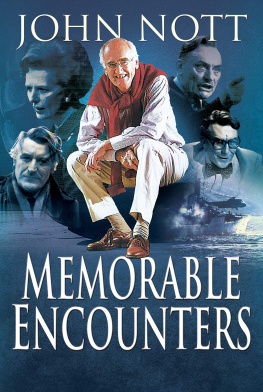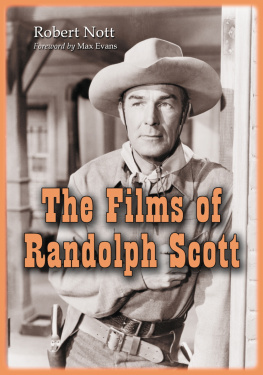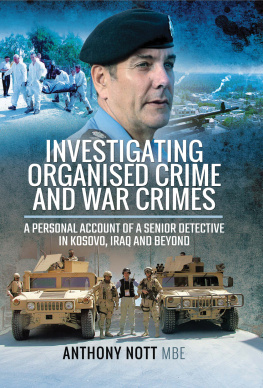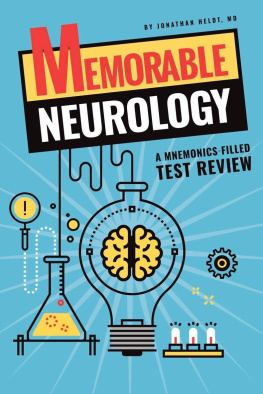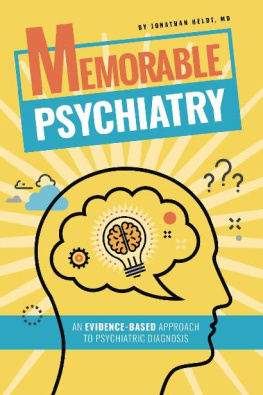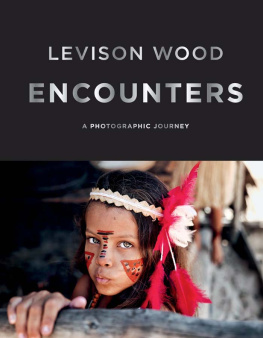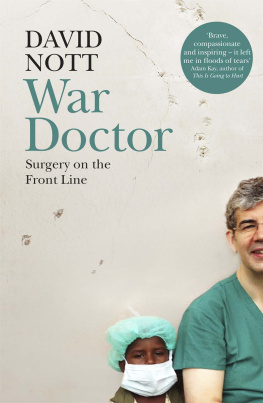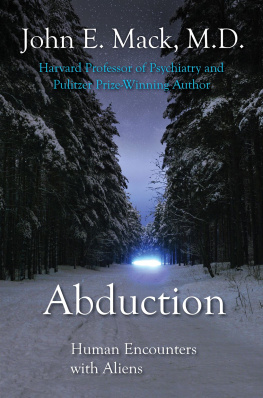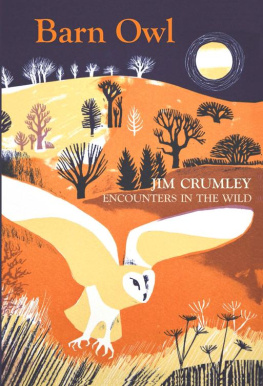Other books by the author:
Here Today, Gone Tomorrow (2002), a memoir
Mr Wonderful Takes a Cruise (2004), a travel book (I)
Havent We Been Here Before? (2007), a family involvement
Trewinnard: A Cornish History (2012), the authors home
Mr Wonderful Seeks Immortality (2014), a travel book (II)
First published in Great Britain in 2018 by
Pen & Sword Politics
An imprint of
Pen & Sword Books Ltd
Yorkshire Philadelphia
Copyright John Nott 2018
ISBN 978 1 52675 115 7
ISBN 978 1 52675 116 4
ISBN 978 1 52675 117 1
The right of John Nott to be identified as Author of this work has been asserted by him in accordance with the Copyright, Designs and Patents Act 1988.
A CIP catalogue record for this book is available from the British Library.
All rights reserved. No part of this book may be reproduced or transmitted in any form or by any means, electronic or mechanical including photocopying, recording or by any information storage and retrieval system, without permission from the Publisher in writing.
Pen & Sword Books Limited incorporates the imprints of Atlas, Archaeology, Aviation, Discovery, Family History, Fiction, History, Maritime, Military, Military Classics, Politics, Select, Transport, True Crime, Air World, Frontline Publishing, Leo Cooper, Remember When, Seaforth Publishing, The Praetorian Press, Wharncliffe Local History, Wharncliffe Transport, Wharncliffe True Crime and White Owl.
For a complete list of Pen & Sword titles please contact
PEN & SWORD BOOKS LIMITED
47 Church Street, Barnsley, South Yorkshire, S70 2AS, England
E-mail:
Website: www.pen-and-sword.co.uk
Or
PEN AND SWORD BOOKS
1950 Lawrence Rd, Havertown, PA 19083, USA
E-mail:
Website: www.penandswordbooks.com
This book of sketches about people I have known in my life is dedicated to my wife, Miloska, and to my nine grandchildren
Introduction
Scene III. The English Camp
This day is called the feast of Crispian
He that outlives this day, and comes safe home
Will stand a tip-toe when this day is named
And rouse him at the name of Crispian
He that shall live this day, and see old age
Will yearly on the vigil, feast his neighbours
Then will he strip his sleeve and show his scars
And say These wounds I had on Crispians day
Old men forget: yet all shall be forgot
But they will be remembered with advantages
What feats they did that day.
William Shakespeare, King Henry V
(with minor changes)
I have known all the people in this book, but not much connects them with each other except their integrity that is why I chose them. None of them died young so they will all have borne the scars of life, whether it was as a participant in the Arctic convoys to Russia in 1943 (Admiral Terry Lewin), disgraceful treatment at the hands of the police (Field Marshal Dwin Bramall) or vicious abuse in politics (Margaret Thatcher).
Inevitably all will be forgot; in the end it is all dust to dust, ashes to ashes. But while most people in the book are still remembered by their contemporaries, they should be remembered with advantages. We should feast our neighbours.
Margaret Thatcher once described me as having a very low boredom threshold; I fear it is true. That boredom threshold always made me restless to move on. As a consequence I went from one profession or activity to another and I met interesting people on the way. Good people.
I started in the Army after school, then Cambridge, the City, politics, business, farming and country pursuits. And the people in this book come from all these diverse fields. I am conscious that the list has rather a military slant, so I was anxious to civilize it with a scientist (Martin Rees), a farmer (Billy Collins) and a poet (Ted Hughes).
This is not a memoir, so I regret that there is rather too much about me in the book; much of it is autobiographical. I did not set out to write a series of potted biographies. After all, many of those in this book have merited major biographies already. To celebrate the lives and achievements of my subjects, I have had to describe the circumstances and environment in which I met them. I have ranged quite widely with my comments on the issues which, I think, are relevant to each of my subjects. These views are mine, not theirs.
I think it is relevant to describe myself as a war child, not in the sense that I ever encountered the terrible traumas of todays young victims in the Middle East and Africa, but the coming of the war in 1939 when I was seven years old marked my life.
In the 1930s we lived a comfortable existence on the outskirts of London, from where my father commuted daily to his job in the City. I think we lived a life of what might be described as bourgeois gentility we were not rich but we had servants and I had a succession of nannies who were instructed to pour cod liver oil down my throat. This led to violent contests, good training for Cabinet government under Mrs Thatcher.
In 1939 I was sent to my Devon grandparents as an evacuee. I remember sitting in their drawing room when Neville Chamberlain announced on the wireless that we were at war: it was 3 September 1939. Tears poured down my grandmothers face; I did not wholly understand, but it was just over twenty years since the horrors of the First World War.
I would like to have included a sketch of my Victorian grandparents, but it was so long ago. They were very austere. It was a serious offence to leave a light on in an empty room. We are told that HM The Queen is quite austere herself and roams around Buckingham Palace turning off the lights. She must have learned this practice from my grandfather.
We were also instructed by the wartime authorities to save the valuable coal reserves of the country by limiting hot water in the bath to six inches. My grandfather painted a line around the bath to enforce this edict. I have not stayed at Buckingham Palace so I am unaware whether this practice has been extended there.
I conclude this brief mention of my grandfather by saying that, as a surgeon, he was one of four doctors in Bideford Hospital. It has been replaced by more than sixty doctors in the North Devon District Hospital in Barnstaple. Are we more healthy nowadays? Maybe so. My grandfather treated the poorer locals in the fishing village of Appledore for no charge; there was no National Health Service. Before antibiotics his favourite medicine was rhubarb and soda as he believed that constipation was the cause of most illness. His patients were reluctant to return for a repeat prescription. Hey presto. There was no queue to see a GP in wartime England.


